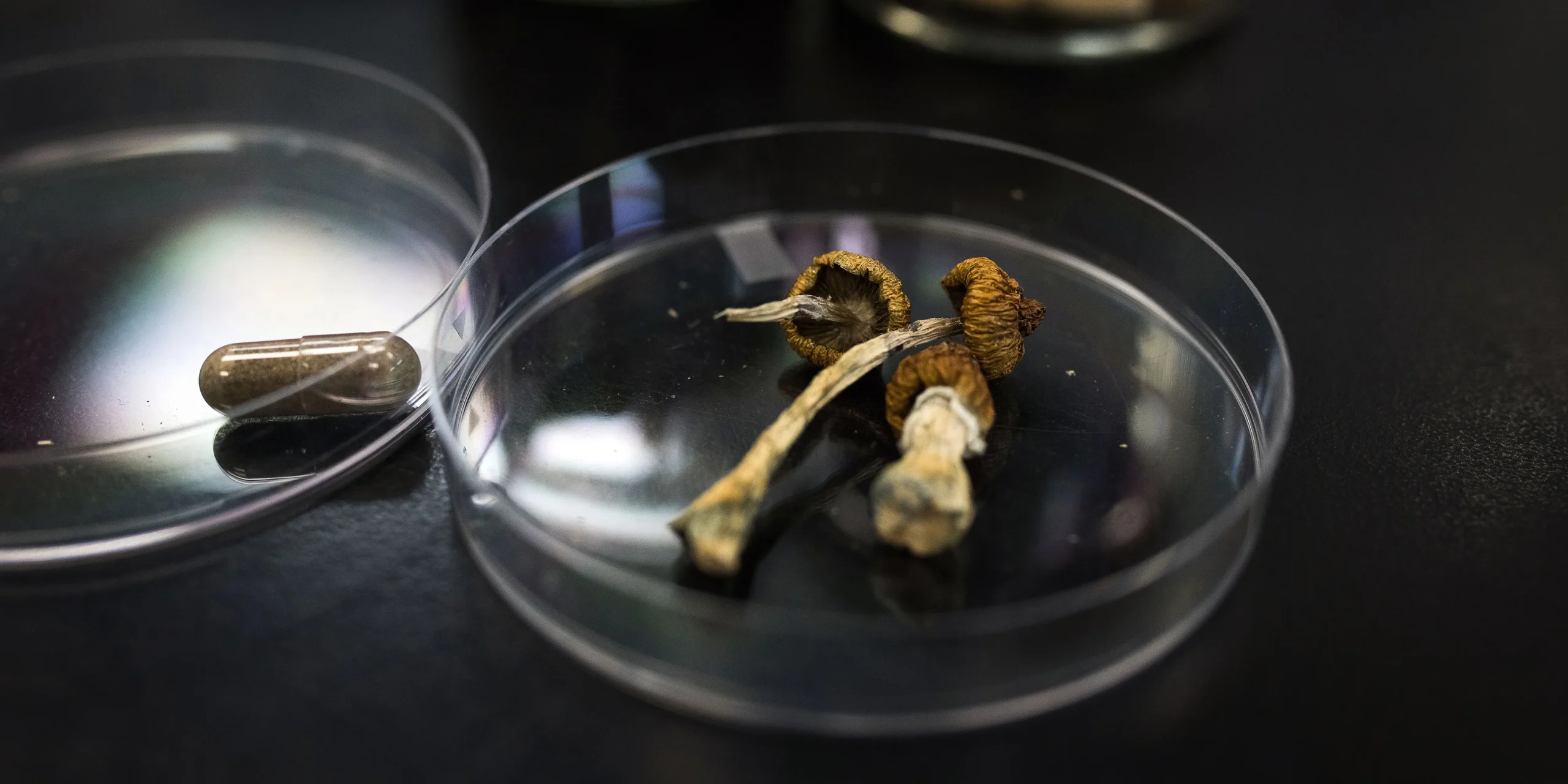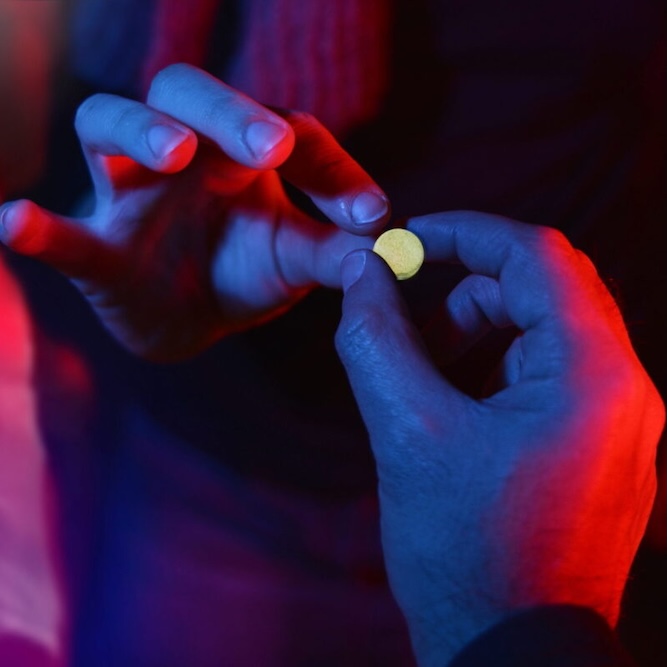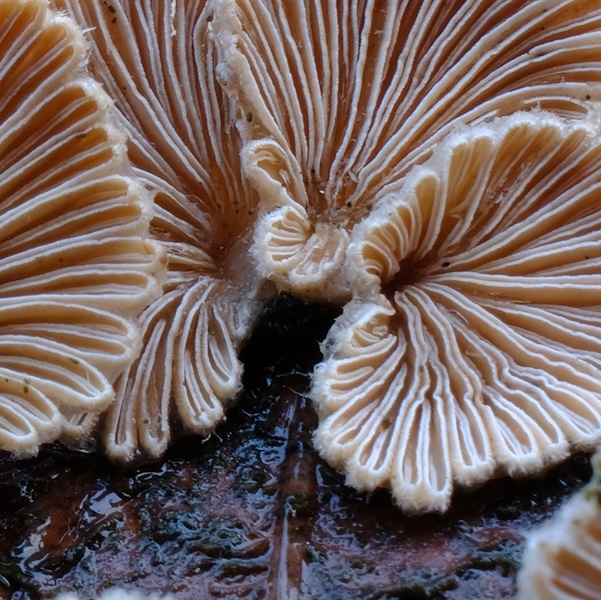A revolutionary initiative is tackling the issue of mislabeled and unsafe psilocybin products, aiming to protect consumers and preserve the integrity of the psychedelic movement.
The cannabis comparison: why mushrooms need standards too

Imagine buying cannabis in a state where it’s legal. You can easily find the THC and CBD content, terpene profiles, and even strain lineage neatly displayed on the packaging. This transparency empowers consumers to make informed decisions and avoid unpleasant experiences, like heightened anxiety or an overwhelming high.
Now, shift your focus to psilocybin mushrooms. Even the most reputable underground sellers often provide little more than vague notes about the mushroom variety. There’s no potency data, dosage guidance, or assurance of product consistency. This lack of information can result in unexpectedly intense trips—or worse, dangerous encounters with mislabeled products.
A new certification program aims to transform this landscape. Designed for producers and brands working with psilocybin mushrooms, this initiative could eliminate the risks of “sketchy” psychedelic chocolate bars and unreliable products that compromise safety and trust in the psychedelic community.
Why certification matters in the wild west of psychedelics
“Most people are pushing out products that just say it’s 100 or 250 milligrams of dried ground cubensis,” explains Joe R., founder of the nonprofit psilosafe. He’s partnered with biotech testing company tryptonomics to establish safety and quality standards for psilocybin products.
Joe underscores the inconsistency in the current market. Many products don’t even contain raw mushrooms. Instead, they’re laced with synthetic substances like 4-ACO-DMT. “We need governance because it’s so wild west. It’s deceptive,” he says.
The need for oversight became painfully clear last summer. Around 160 people fell ill after consuming questionable psychedelic-infused chocolate bars. Several required hospitalization, and two deaths were potentially linked to these mislabeled products. Some bars were found to contain harmful levels of muscimol, a psychoactive compound in amanita muscaria mushrooms, or entirely different psychedelic tryptamines.
Even more alarming, in November, law enforcement seized 95,000 mislabeled “magic mushroom blend” bars in San Diego. These bars contained none of the advertised mushrooms, raising serious questions about consumer safety.
Learning from past mistakes: a call to action
The risks of contaminated or mislabeled products aren’t new. Remember the cannabis vape crisis involving vitamin E acetate, which led to serious lung injuries? Experts fear that without community-driven initiatives, psilocybin products could face a similar crisis.
“We want to launch this underground, gray market in a way that is ethically and morally proper,” says Joe. He emphasizes the need for risk mitigation to prevent a catastrophic event that could derail the psychedelic movement. “We’re doing this to protect the mental wellness movement from brands lacing their products with random substances and calling it ‘mushrooms.’”
Psilosafe: building trust through transparency
To address these issues, psilosafe has teamed up with 15 brands, including counter culture, empathacary, stem social, and brainspa. These partnerships aim to ensure safe, consistent, and high-quality products for consumers who need them most.
Each certified product features a QR code on its packaging. This code links to detailed data sheets, offering transparency about psilocybin and psilocin levels, as well as other alkaloids. The sheets also include potency guidance—ranging from micro to macro doses—helping consumers choose the right dosage for their desired experience.
“We really cannot market potency based on dry weight anymore,” Joe notes, highlighting the increasing potency of mushrooms and the growing availability of dosing calculators within the community.
Setting the standard for psilocybin products
Through its collaboration with tryptonomics, psilosafe is introducing a standardized system for reporting the potency of infused products. “This highlights the importance of providing on-package information to manage consumer expectations and mitigate risk,” explains Ian Bollinger from tryptonomics.
These efforts mark a pivotal step toward legitimizing the psilocybin industry. By ensuring accurate labeling and reliable potency information, psilosafe is paving the way for a safer, more credible market.
What this means for consumers and the psychedelic movement
Psilosafe’s certification program isn’t just about safety; it’s about trust. Consumers deserve to know what they’re ingesting and how it will affect them. For the psychedelic movement, this initiative could mean the difference between cautious acceptance and widespread skepticism.
The future of psychedelics depends on responsible innovation. Psilosafe is leading the charge, ensuring that the journey into altered states begins with transparency, safety, and respect for this powerful mental wellness tool.




